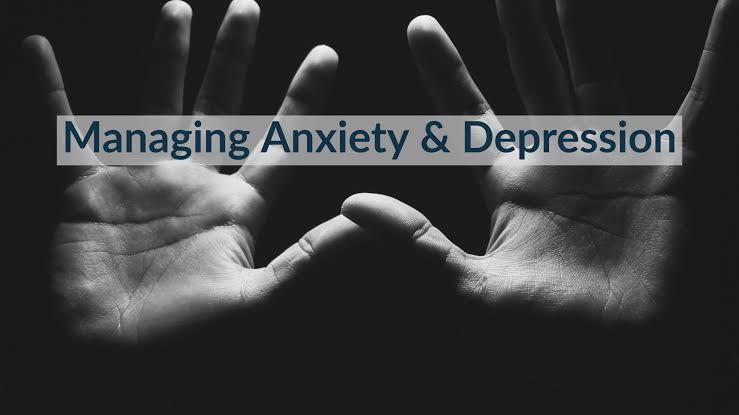Features
How to handle and manage anxiety and depression

Unpredictable circumstances of life, unfair conditions of life, baggage of life can cage one in anxiety and depression. Life has it’s ways of creating anxious and depressed moment. Depression and Anxiety might seem distinct. Depression is the feeling of emptiness, sadness longer than two weeks. It can also be portrayed through signs like loss of interest in usual fun activities and hobbies, sense of hopelessness and pessimism, feeling low and slow, feeling of helplessness and worthlessness, chronic fatigue, sleep problems, changes in appetite and weight, difficulty concentrating etc. Anxiety goes beyond worrying about unexpected or challenging life circumstances. Anxiety is part of how one responds to stress. It can also involve the following symptoms such as a sense of panic, a sense of being on edge, difficulty managing fear and worry, physical restlessness, irritability.
 It is not all unusual to feel sad or have the low mood emotion but it is problematic when it lingers for so long and becomes inherent and part of one’s lifestyle. Although, not everyone experiences the same set of symptoms. That is, everyone’s experiences of anxiety and depression is different ranging from past or childhood experiences such as neglect, racism, physical or emotional abuse to one’s current life situations such as money problems, housing problems, unemployment problems, stress to physical and mental health problems such as living with a serious ongoing or life threatening physical health condition, living with mental health problems such as depression can sometimes trigger anxiety.
It is not all unusual to feel sad or have the low mood emotion but it is problematic when it lingers for so long and becomes inherent and part of one’s lifestyle. Although, not everyone experiences the same set of symptoms. That is, everyone’s experiences of anxiety and depression is different ranging from past or childhood experiences such as neglect, racism, physical or emotional abuse to one’s current life situations such as money problems, housing problems, unemployment problems, stress to physical and mental health problems such as living with a serious ongoing or life threatening physical health condition, living with mental health problems such as depression can sometimes trigger anxiety.
Anxiety and depression can improve with support from a mental health professional.
 Fears and worries can prompt lingering thoughts and fears that eventually begin to affect one’s daily life. In therapy, you can get support with exploring the symptoms you have noticed and addressing them, whether they relate to depression of anxiety. Keep in mind that only an open mind and honest description of your mood can help the medical professional better understand how you’re feeling which can lead to a correct diagnosis and solution. With a medical professional, you can rule out the fear of being judged. Talk therapy is very effective.
Fears and worries can prompt lingering thoughts and fears that eventually begin to affect one’s daily life. In therapy, you can get support with exploring the symptoms you have noticed and addressing them, whether they relate to depression of anxiety. Keep in mind that only an open mind and honest description of your mood can help the medical professional better understand how you’re feeling which can lead to a correct diagnosis and solution. With a medical professional, you can rule out the fear of being judged. Talk therapy is very effective.
Another way to manage anxiety and depression is to learn how to take steps to cope on your own. Ask yourself some questions such as Do I often feel sad, hopeless or empty? Do I often worry about things I cannot control? Do I often cycle through dark thoughts and cannot seem to stop? Do I often become easily irritable and annoyed? Have I started to avoid spending time with loved ones and friends? With these questions, allow yourself to answer deeply and genuinely, then write down or take inner notes and observations regarding what drains your energy. Purge your thoughts by giving room to your positive thoughts even when negative thoughts keep coming. Fight it, internally and mentally.
Allow yourself to fell what you are feeling but do not let your feelings take control of you, be in charge. Regain control over things. In life, one might not be able to control all but try to regain some control in the moment which could help overwhelming feelings feel a little easier to cope with. Eat balanced meals and maintain good rest, relaxation and sleep. You are the best person to also recognize what is going on and what is best for you.
Speak to loved ones.

Reach out to friends and close family who can listen with compassion, provide emotional support and encouragement. Build healthy relationships with people you care about and that cares about you. Having someone or people to talk to can help manage anxiety and depression.
Anxiety and depression have several options for management but you do not have to manage symptoms alone. Get support and seek therapy because anxiety and depression can feel overwhelming.

